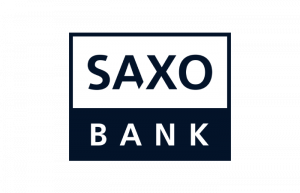Aave: Revolutionizing Decentralized Finance
Aave has emerged as a pivotal force in the decentralized finance (DeFi) sector, offering innovative lending solutions. This article explores how Aave is shaping the future of finance through its unique features and services.

Aave, a trailblazer in the decentralized finance (DeFi) landscape, has significantly impacted how lending and borrowing are conducted in the blockchain space. Founded by Stani Kulechov, Aave started as ETHLend, a peer-to-peer lending service, before evolving into the Aave protocol, which now offers a wider range of financial tools and services. This transition highlights Aave’s adaptability and commitment to innovation in the rapidly growing DeFi sector.
One of the core functionalities of Aave is to enable users to lend and borrow cryptocurrencies in a completely decentralized and secure environment. Unlike traditional banking, where the bank sets terms and acts as an intermediary, Aave allows transactions directly between parties through smart contracts on the Ethereum blockchain. This not only reduces the costs associated with borrowing and lending but also enhances transaction speed and accessibility.
Aave distinguishes itself with several unique features that enhance its platform’s utility and user experience. One such feature is “flash loans,” which are essentially uncollateralized loans that must be borrowed and repaid within a single blockchain transaction. This innovative offering is the first of its kind in the DeFi space and has opened up new avenues for developers and traders to utilize arbitrage opportunities without committing a significant amount of capital.
Another significant aspect of Aave is its introduction of rate-switching. This feature allows borrowers to switch between fixed and variable interest rates. While variable rates can offer lower costs when market conditions are favorable, fixed rates provide certainty and protection against rate increases in the future. This flexibility is a significant advantage for users seeking to optimize their borrowing strategies according to market conditions.
The governance of Aave is also a key element of its platform. It operates on a decentralized autonomous organization (DAO) model, which means that token holders get to vote on key decisions affecting the protocol’s future direction. This includes decisions on new features, tokenomics, and even how the collected platform fees should be utilized. The governance token, AAVE, gives stakeholders not only a say in the network’s operations but also a portion of the fees generated from Aave’s services.
Aave’s contribution to the DeFi sector extends beyond its technical innovations. It has significantly contributed to the liquidity of the cryptocurrency market. By locking up assets in its lending pools, Aave helps maintain a healthy level of liquidity, ensuring that users can perform transactions efficiently and at reasonable costs.
Looking forward, the potential for Aave to expand its offerings and further integrate with traditional financial systems appears promising. As blockchain technology continues to mature and gain acceptance, Aave’s innovations could pave the way for more mainstream applications of DeFi principles. However, like all platforms in the crypto space, Aave faces challenges, including regulatory hurdles and the inherent volatility of cryptocurrency markets.
In conclusion, Aave is more than just a DeFi platform; it is a vital contributor to the evolving landscape of finance. Through its continuous innovation and dedication to improving accessibility, security, and efficiency in lending and borrowing, Aave is not only advancing the interests of cryptocurrency enthusiasts but also laying the groundwork for the future of decentralized financial services.









